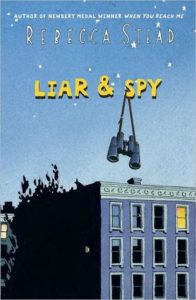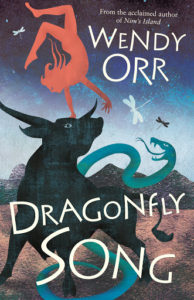Chapter Six: Letter From Home
The next cricket match is against Ginty’s team, Lower V.A, who’ve been coached by Evil Lois and are feeling very confident. But Lower IV.A field, bowl and wicket-keep very effectively, aided by Nicola’s insider knowledge of Ginty’s batting weak spots to get Ginty out for one measly run. Lower IV.A struggle a bit when it’s their turn to bat, but a last-minute effort by Barbara and Pomona, combined with Lower V.A’s pathetic fielding, win the day. Pomona really is a solid player. Nicola should have played her earlier. (I say, with my near non-existent cricketing expertise – I had to Google how many balls were in an over. I really don’t know how Americans would manage to follow all the details in this book’s cricket descriptions.)
Then there’s an excellent scene where Miss Craven and Janice are watching Nicola coach the team, noting how well Nicola is doing. Evil Lois is nearby training Lower V.B, while Janice wonders to herself whether Lois is really only helping the teams playing against Nicola, which sounds demented, “except that Lois was a demented character”. When Lois joins them, she’s horrified to hear Miss Craven suggest that Nicola will be Games Captain in a few years. Lois blusters about Nicola’s team doing too much practice and how they should be stopped because it’s not fair to the other teams, which Miss Craven thinks is “the most absurd argument I’ve heard in a very long time” and also, why has Lois stopped Nicola’s team from using the good nets and pitches for practice? Furthermore, if Lower IV.A lose their next match, Miss Craven wants to put Nicola on the ‘Prospects’ list, where she’ll get special coaching and be considered for the school team. Janice, stirring like mad, says that would be fantastic for Nicola, when not “even Rowan managed it that young” and then adds pointedly, “It should almost make up for that—misunderstanding—over the netball team.” Which Miss Craven agrees with, saying it was most uncharacteristic of Nicola to be unreliable, so she should ask Nicola about what really happened at some stage. And Lois leaves, deeply unsettled.
I love Janice.
I love her even more in the next scene, because she’s the only good thing about the situation. Poor Nicola gets an ominous-looking letter from her mother, so she goes up to the roof to read it in private, worrying that Buster or Tessa have died. But it’s terrible in an unexpected way — Mrs Marlow has written to say the school fees are going up, so one of the sisters will have to leave Kingscote and it has to be Nicola. It can’t be Ann or Ginty because they’re about to do O and A levels, and it can’t be Lawrie, because she’s so immature that she needs boarding school to make her grow up. Both Marlow parents agree it should be Nicola because “you’re a sensible person who won’t stamp around, spoiling things for yourself … complaining for years it was all dreadfully unfair.” Nicola will go to Colebridge Grammar, which must be an okay school because Edwin’s sending Rose there. And she mustn’t talk about this with anyone.
My previously low opinion of the Marlow parents has plummeted to uncharted depths.
I mean, REALLY? Mrs Marlow sells their diamonds and spends it on fancy hunting horses, but now they can’t afford school fees? They’ve inherited a huge estate, but they can’t rent it out to earn money because Captain Marlow wants to swan about being Lord of the Manor, with Rowan forced to run the farm for no pay. They chose to have EIGHT children and send them all to expensive private boarding schools, without thinking how they’d afford it all the way through their schooling. There’s no mention of taking Peter out of his naval cadet school, even though he hates it and has no intention of ever joining the navy. And they don’t decide to send all four girls to Colebridge Grammar, where at least they’ll have each other — no, just poor Nicola by herself, not knowing anyone. And Nicola’s the one who really loves Kingscote, has lots of friends, is doing well academically, showing good leadership skills, and instead of being rewarded for this, she’s punished.
Fortunately, Janice is there to offer unsentimental, practical support (and barley sugar). Jan also notes that now that Karen has left Oxford, her Prosser scholarship can be awarded to someone else, and maybe, if Nicola works a bit harder, she could win that and stay at Kingscote. Nicola’s only real rivals are Miranda, who definitely doesn’t need the money because her father’s just paid for the school swimming pool, and Meg Hopkins. So there’s a bit of hope.
Unfortunately, Nicola has been so distressed that she’s missed first period English with their inept student teacher, who is told by the girls that the correct procedure is for them all to go outside and look for Nicola. This is a welcome bit of comic relief, as Lower IV.A “prance about the grounds, looking under dock leaves and turning stones”, doing Nymph dances in the middle of the playing field. Unfortunately, Miss Cromwell happens to look out the window and see this and there is blood for breakfast. They get a form conduct mark, so they’re out of running for the Form Shield for the third year in a row, and they have compulsory silence till Sunday, which Nicola doesn’t mind because at least no one will ask why she’d been so upset.
Chapter Seven: Dolphins and Nemesis
Ginty is still a bit miffed that she’s not in the school play, but thanks to all the extra practice and her lucky four-leaf clover, she and Monica are chosen for the swimming and diving match against the Wade Abbas Collegiate, which I guess is a girls’ school attached to the Abbey.
Meanwhile, Lawrie is having trouble with her Ariel role, because she just can’t imagine herself as a “fairy”. Miss Kempe attempts to explain that Ariel isn’t some twee fairy, but a near immortal, soul-less being with magic powers and suggests Lawrie read Lord of the Rings. But Lawrie continues to be terrible in the role.
Nicola reflects to herself that at least when she leaves Kingscote, there’ll be no annoying Ann or Lawrie around. Even Tim despairs of Lawrie. Tim’s also not making much progress on her costume design, although she has a good cathartic laugh with Nicola when they contemplate Ariel wearing briefer-than-briefs with glitter, in relation to Miss Keith. Then there’s a good conversation between Nicola, Tim, Miranda and Esther about what they might do in future. Tim has her sights on producing St Joan when they’re in Sixth Form and then becoming a real-life producer. Miranda will end up working in her father’s antiques shop, but wishes she had more of a choice – although she doesn’t really know what she wants to do, probably something in art and design. (I’m surprised Miranda isn’t aiming for Oxford and something more academic, as she seems very intelligent and curious about the world.) Nicola usually tells people she wants to join the Wrens, but unfortunately, she knows she’ll never get to command a ship because she’s not a boy. She tells the others she’s planning to sail solo round the world, then decide about her future. Esther, unexpectedly, wants to be a gardener and live in her own flat with Daks. Good for her.
Then there are some more cricket matches. Upper V.B, the favourites, annihilate the poor little Seconds, in a very unfair and humiliating display of dominance, so the whole school turns against them. Meanwhile, the Sixth Form team, which includes Lois and Janice, beat Middle Remove, who had already won against Upper V.A. (“a bunch of intellectuals who could have beaten them easily enough, but had decided that passing their numerous O levels creditably took precedence” and therefore played to lose, to Ann’s dismay). This means that the entire school, including Nicola and Miranda, turn up to cheer the Sixth when they play those rotten scoundrels, Upper V.B. The Sixth, encouraged by the wild applause, play well, and Janice is a batting star, and they win. So I think that means Nicola’s team will be playing Lois and Janice and the other sixth formers in the final, if they first manage to beat Lower V.B.
I am still mad at the Marlow parents.
Next, Chapter Eight: Casualty



 I began the year engrossed in Tana French’s
I began the year engrossed in Tana French’s  I enjoyed Kate Constable’s new middle-grade novel,
I enjoyed Kate Constable’s new middle-grade novel,  However, my favourite children’s read was, unexpectedly, a novel told partly in verse about a girl living in a Bronze Age Mediterranean culture ruled by superstition. Dragonfly Song by
However, my favourite children’s read was, unexpectedly, a novel told partly in verse about a girl living in a Bronze Age Mediterranean culture ruled by superstition. Dragonfly Song by